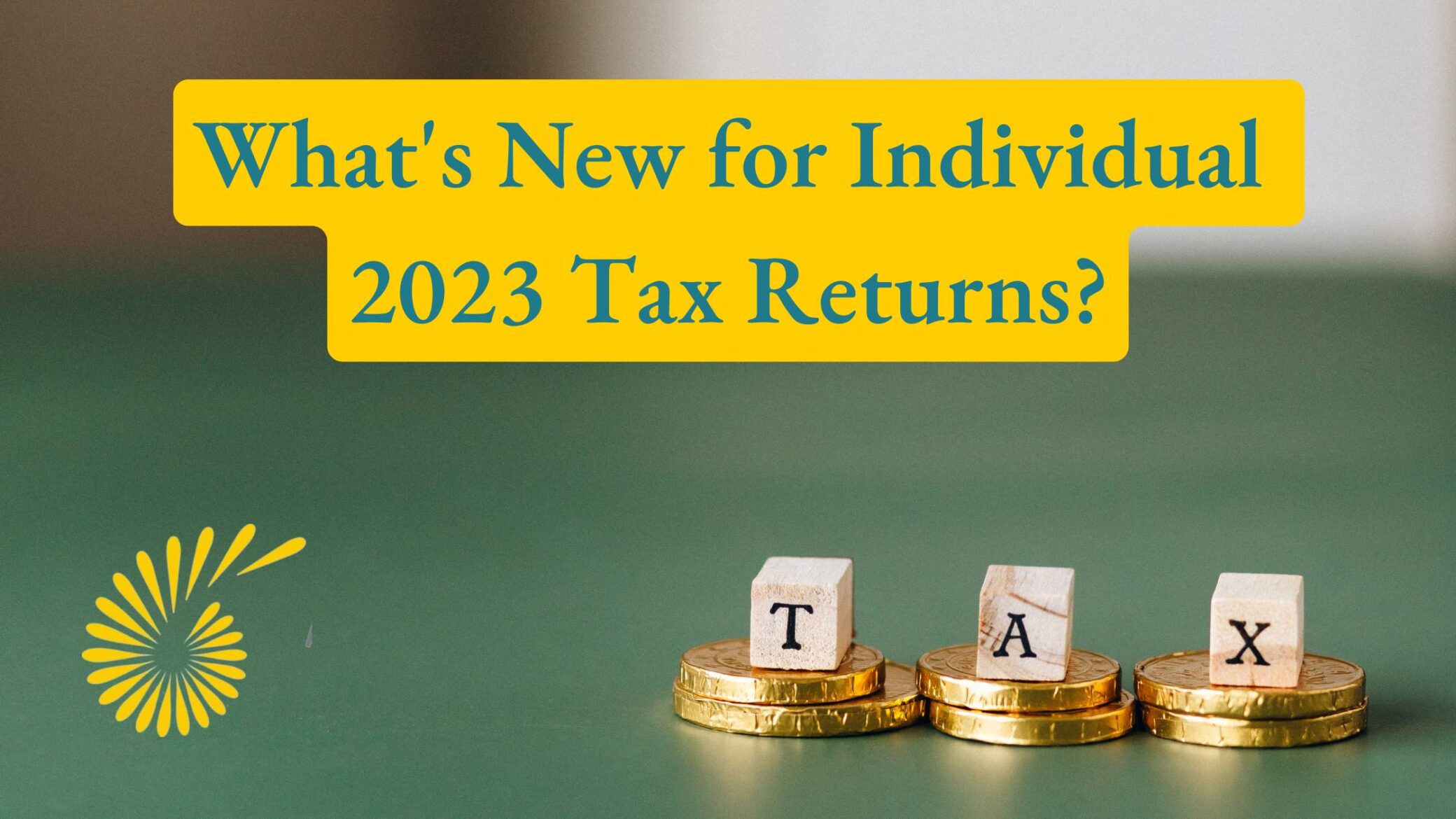What’s New for Individual 2023 Tax Returns?
Here is a quick summary of some of the major changes your 2023 personal tax returns that you should be aware of. Please note that your personal tax returns are due on April 30, 2024, this year.
Advance Canada Workers Benefit (CWB) Payments
Taxpayers no longer need to apply for advance CWB payments; these are now automatically issued to eligible recipients based on the previous tax year’s entitlement. Form RC201, Canada Workers Benefit Advance Payments Application, is no longer used.
Deduction for Tradesperson’s Tools Expenses
Employees can now deduct up to $1,000 for tradesperson’s tools expenses, increased from $500 in 2022.
First Home Savings Account (FHSA)
This is a new registered account to help individuals save for their first home. Contributions are deductible, and income earned in an FHSA is not taxable. Qualifying withdrawals for a first home purchase are also tax-free.
Multigenerational Home Renovation Tax Credit
A new refundable tax credit of up to $7,500 (15% of $50,000) for qualifying renovations to an eligible dwelling to accommodate a qualifying individual living with a qualifying relation. Claims can be made for expenditures after December 31, 2022.
Residential Property Flipping Rule
A new rule deems profits from flipping residential real estate (including rental properties) owned for less than 365 days as taxable business income instead of capital gain, with exemptions for specific life events.
Working from Home Deduction
The temporary flat rate method for claiming home office expenses is no longer available. Employees must use the detailed method for 2023 and future years.
Automatic filing for low-income Canadians
Up to 2 million Canadians will be eligible for the CRA’s new automatic File my Return service in 2025, which is triple where we are at today. 53,000 Canadians took advantage of this service in 2022. We estimate that most of the people who will be eligible to file under this service will owe little or no tax, which may have prevented them from filing previously. Not filing a return, however, may have prevented them from accessing valuable government benefits, so overall this is likely a win.
Canada Dental Care Plan (CDCP)
Health Canada’s Canada Dental Care Plan (CDCP) was announced on December 11, 2023, as a comprehensive initiative to provide dental coverage for eligible Canadian residents. The plan aims to cover a wide range of dental services, offering financial assistance to individuals and families who meet specific criteria.
Indexation increases for personal taxes.
In 2023, various tax brackets and credits were indexed up using 6.3% inflation. In 2024, they are being indexed by a further 4.7%. Here’s a few highlights of the changes for 2023:
- Basic personal amount, up to $15,000,
- Spouse / common-law amount up to $17,499,
- Amount for eligible dependent up to $14,499,
- Disability tax credit $9,428,
- Old Age Security claw back threshold starts at $86,912,
- TFSA limit for 2023: $6,500 ($7,000 in 2024). Lifetime total $88,000 (2023), $95,000 (2024),
- Canada Child Benefit < 6 years old $7,437, 6-17 years old $6,275,
- RRSP contribution limit $30,780 (2023), $31,560 (2024)
- Maximum CPP contribution $3,754 (2023), $4,056 (2024)
- Maximum EI contributions $1,002 (2023), $1,049 (2024)
Interest rates on overdue taxes
- Q1 2023: 7%
- Remainder 2023: 9%
- Q1-Q2 2024: 10%
Immediate expensing of capital properties (business income)
Eligible property available for use before January 1, 2025, remains eligible for immediate expensing for individuals and Canadian partnerships with individual members. Notably, the parallel immediate expensing regime for corporations with business income expired on December 31, 2023.
Electronic payments over $10,000
As of January 1, 2024, there is new legislation that requires tax payments over $10,000 to be remitted electronically or pay a penalty. A grace period is expected before enforcement, however the CRA has not indicated how long the grace period will be. Their stated aim as of today is to educate people about the changes rather than penalize them for not following the new rules.
Changes to the Underused Housing Tax (UHT)
Changes proposed in the 2023 Fall Economic Statement would redefine “excluded owners” for UHT purposes, relieving them of reporting obligations. These new definition of “excluded owner” only applies to tax years on or after 2023, meaning that the reporting requirements for 2022 haven’t change, which we find odd. Reminder that 2022 and 2023 UHT returns are due to be filed on or before April 30, 2024. For a summary of the changes, please see our article here.
Denial of deduction for short-Term Rentals
Proposed changes would deny deductions for non-compliant short-term rentals starting January 1, 2024. Read our blog summarizing the changes for more details.
Questions?
Do you have questions about how these changes apply to you? We’d love helping entrepreneurs understand their risks and how to save on taxes, contact us today!
CONTACT US

